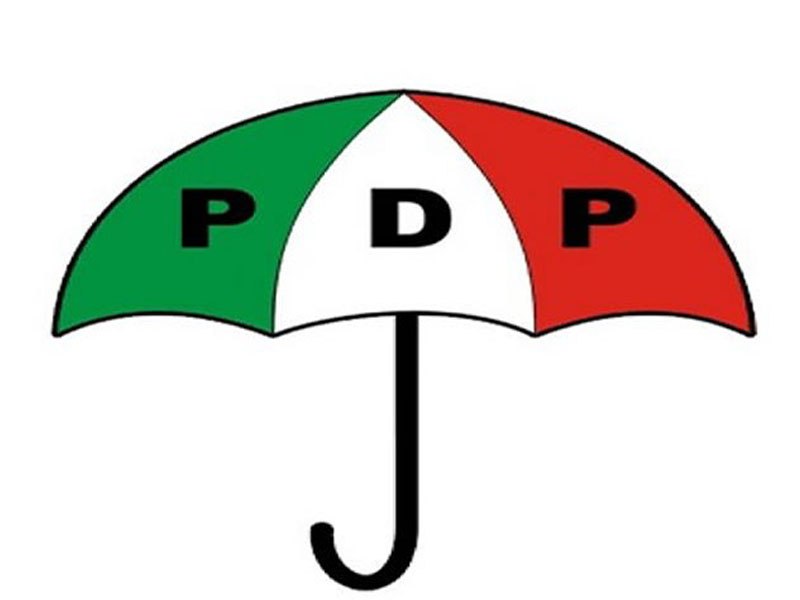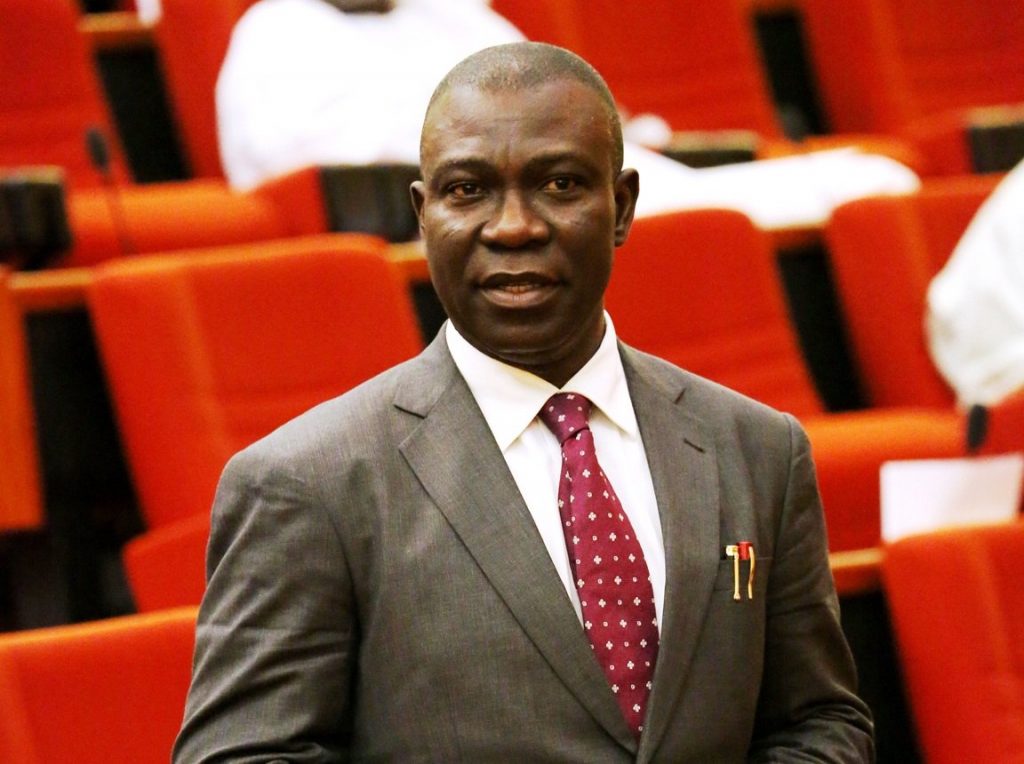News
PDP: A Historic Comeback From the Brinks
By Chibueze Daniel

Although the Independent National Electoral Commission (INEC) had denied any political influence over its decision to postpone the 2019 presidential and National Assembly elections; although the presidency and ruling All Progressives Congress (APC) have both expressed anger and disappointment at INEC, the general perception out there favours the Peoples Democratic Party (PDP) presidential candidate, Alhaji Atiku Abubakar’s description of the postponement as the hand of Esau and voice of Jacob. It favours PDP’s official statement alleging that INEC literally bowed to political pressure to save President Muhammadu Buhari and APC from imminent whitewash.
Interestingly, INEC also postponed elections in 2011 and 2015 under the PDP. Ahead of the PDP elections in particular, the PDP was factionalised, leading to the biggest threat to its stranglehold on presidency from a coalition of parties and potent political forces that merged as the APC. The international community was also breathing hard on the government of former President Goodluck Jonathan, which it “perceived” as weak in fighting corruption and insurgency.
Today, the roles and circumstances have virtually reversed, with the APC at the receiving end. The prolific analyst, Ikechukwu Amaechi, summarises the reversal and APC’s chances this way: “In 2015, Buhari contested against Jonathan, a Southern minority Christian with no political base. Today, he is running against one of the most formidable politicians in this dispensation, a man with a solid political base, clout and deep pocket, a Fulani Moslem, from a region – North East – that last held power when Tafawa Balewa from Bauchi State was the Prime Minister in the First Republic.

“In 2015, the APC went into the election as a united, pragmatic and determined party hungry for power, eager to make a resounding political statement against a highly fractious, disorganised and disoriented PDP.
“Today, the reverse is the case. A strong, rejuvenated and virile PDP is going into Saturday’s election against a highly fractured, hemorrhaging APC where some governors are not on talking terms with the National Chairman, Adams Oshiomhole.
“Five years ago, some governors elected on the platform of the PDP defected to the newly formed APC. It was a political tsunami. In 2018, three APC governors kissed goodbye to the party and went back to PDP together with the incumbent Senate President, Bukola Saraki, and Speaker of the House of Representatives, Yakubu Dogara. Most of the PDP bigwigs that defected to APC in 2014, thus making Buhari’s victory possible, have gone back to PDP. These include grassroots mobilisers like Rabiu Musa Kwakwanso, two-term governor of Kano State, former Defence Minister and scion of the Talakawa School of politics.
“In many states, debilitating intra-party squabble has shredded APC. In Rivers for instance, the supremacy battle between Rotimi Amaechi, former governor of the state and incumbent Minister of Transportation and Senator Magnus Abe has ensured that the party will not field any candidate in these elections.
“In 2015, it was the PDP presidential campaign convoys that were stoned, booed and jeered. Today, it is the APC’s. Buhari nearly took a stone meant for Oshiomhole at a campaign rally in Abeokuta”.
“Short of blatant and unconscionable rigging, the kind that will be so obvious the electorate will be hard put tolerating or ignoring, Buhari will be roundly defeated on Saturday”.
“The PDP has dramatically reinvented itself and staged a remarkable comeback. The APC cannot because of its inherent contradictions.”
So, if the PDP says that a frightened APC pressured INEC to postpone the last Saturday polls, it must be speaking from experience. But beyond the brickbats over the postponement, even beyond which party eventually wins on 23rd February, is the most pulsating and surprising comebacks in our political history staged by the PDP, which looks so favoured to clinch the presidency.
Nobody thought it was possible in 2015, 2016, and even up to May 2017 after the party’s fall from power, mass defections, the Ali-Modu sheriff leadership crisis, and both the justified and unjustified clampdown on its chieftains by the security and anti-corruption agencies, notably the Economic and Financial Crimes Commission (EFCC), police, and Department of State Services (DSS).
The Deputy Senate President, Chief Ike Ekweremadu, a key actor in the reinvention of the once comatose party, relived the PDP journey from the half-dead to the threshold of power during a radio programme in Enugu where he was reported as saying that his decision, along with several PDP chieftains, to remain with the PDP in its darkest hours despite political persecutions was to ensure that Nigeria did not slump into a one-party state.

Several papers reported him as saying: “The beauty of democracy is vibrant opposition. After we lost the presidential election, I made my stand on rebuilding the PDP clear. I didn’t nurse any illusion that it would be a smooth ride, but I was determined to pay the price.
“We were able to put things together, including zoning the presidential ticket to the North through the Panel I was privileged to chair, to ensure that our northern big wigs, including our presidential candidate, returned to the PDP.
“Together with our friends, colleagues, our governors and some other people, we were able to rebuild the PDP. Today, when you watch the rallies, you say oh, this is a huge crowd for APC in Adamawa or that was a huge PDP crowd in Katsina, the home of the President. That is an interesting thing and that is exactly what we worked for.
“I am proud to see the product of those efforts manifest. I am happy when I see this close contest and by the grace of God, PDP will win. You couldn’t say the same thing about the party in 2016, for instance, because then, the party was in shambles”.
I cannot agree more. I can only add that in addition to its internal wrangling occasioned mainly by the greed of a few bent cornering the entire levers and benefits of power, APC’s palpable incompetence also played a major part. Senator Saraki alluded to this on return to the PDP when he said that “the PDP has learnt more from its defeat than APC has learnt from its victory”.
Whether PDP retakes power or APC miraculously rescues its burning nuts from the fire of opposition and anger of Nigerians, the tight presidential contest is good for our democracy. None of the two dominant parties would ever take Nigerians for granted again, thus the hope for good governance is brightest post May 29, 2019.
Therefore,
whatever anybody thinks about men like Ekweremadu, Ayo Fayose, Nyesom Wike,
Ahmed Maikarfi, David Mark, Enyinnaya Abaribe, all the PDP governors (none of
whom defected), and a host of others, including many faithful PDP federal
lawmakers, history will be kind to them for refusing to budge to political
pressure and patronages. Instead, they choose to go into the trenches against a
hitherto emerging one-party state that would have spelt doom for our
democracy.
Daniel writes from Aba
And For More Nigerian News Visit GWG.NG

